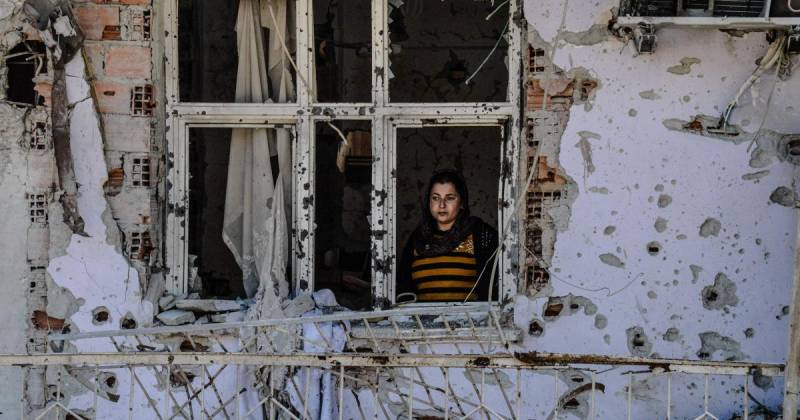In December 2015, on the 12th day of a 24-hour curfew in Şırnak province, along Turkey’s border with Iraq and Syria, a family in the Silopi district grew hungry as they hid in the basement of their home.
Outside, clashes raged between the Turkish military and Kurdish insurgents. When the elder of the house, 73-year-old Hasan Sanır—or Seyda, as the people of Silopi knew him—went upstairs to get food, bullets struck the kitchen windows, shattering the glass.
One bullet hit Seyda in the back, another his head. Seyda let out a small cry, and died next to the kitchen cupboard. Some say the shots intentionally targeted Seyda, others say he was randomly hit in the crossfire. Whatever the case, the family heard his cry and ran upstairs. Seyda’s son placed a blanket over his father’s lifeless body, among the bullet-riddled kitchen cabinets.
The son called the authorities, but nobody came to pick up the body. For nine days, until the clashes became too intense and they were forced to leave, the family lived in the house alongside Seyda’s body.
Two weeks after his death, Seyda’s body was finally retrieved by police officers, sent to Şırnak for an autopsy, and later buried in Silopi.
So who was Seyda?
Seyda was a well-respected person in Silopi. He had been an imam for years. He was one of the imams that started the Civil Friday movement, in which Friday prayers were held in locations outside the mosque. He was active in local politics through the Democratic Regions Party (DBP). He was always one of the first to step in and help resolve disputes.
“We lost such a valued person, yet such an important loss did not even make it into the news,” my Silopi host told me.
During my recent visit, the kitchen cabinets were still riddled with bullet holes. One grandchild was asleep in a cradle, and two were lying on the ground. Another grandchild, about 12 or 13 years old, listened to our conversation with eyes full of anger.
After I spoke with their mother for some time, Ayşe, their grandmother and Seyda’s wife, entered and gave me an enormous hug. “Welcome to our home,” she said.
I felt embarrassed, until I understood just how lonely Seyda’s family feels, like so many other families across Turkey’s southeast following the violence that wracked the region from late 2015 to early 2016.
The family brought me nuts and strong tea. Aunt Ayşe handed me a photograph of Seyda and, with shining eyes, began to tell me about her beloved.
“He was very kind to people around him. He was someone with good ideas. He would help to bury every fallen fighter. He was fearless. He was a patriot. He was known and respected. This had made him a target. They shot at our home for an hour and a half,” she said.
“He loved me, and I loved him. With him, I was at peace, and held my head high. But he is gone now, and I am devastated. I miss him so much. Now his burden is mine to bear, and I must take responsibility for his cause. Our beliefs were compatible, we saw eye to eye. This is the fate Allah has written for us, what can we do?” she continued.
I asked Ayşe what it was like to spend nine days with the body of her beloved.
My girl, when we buried him even the police participated in the prayers. But do you know what hurts me the most? He put so much effort into this struggle, but his picture did not appear once on the television,” she told me. “The death of such a valuable man, who spent his entire life fighting for this cause, did not produce a single piece of news. Can you imagine what it means for a body to remain on the floor for nine days? Just think, the body of your loved one is in the kitchen, and you cannot enter that kitchen to retrieve him.”
If only we could have imagined this for just one moment, Ayşe, Turkey might be a different place today.
